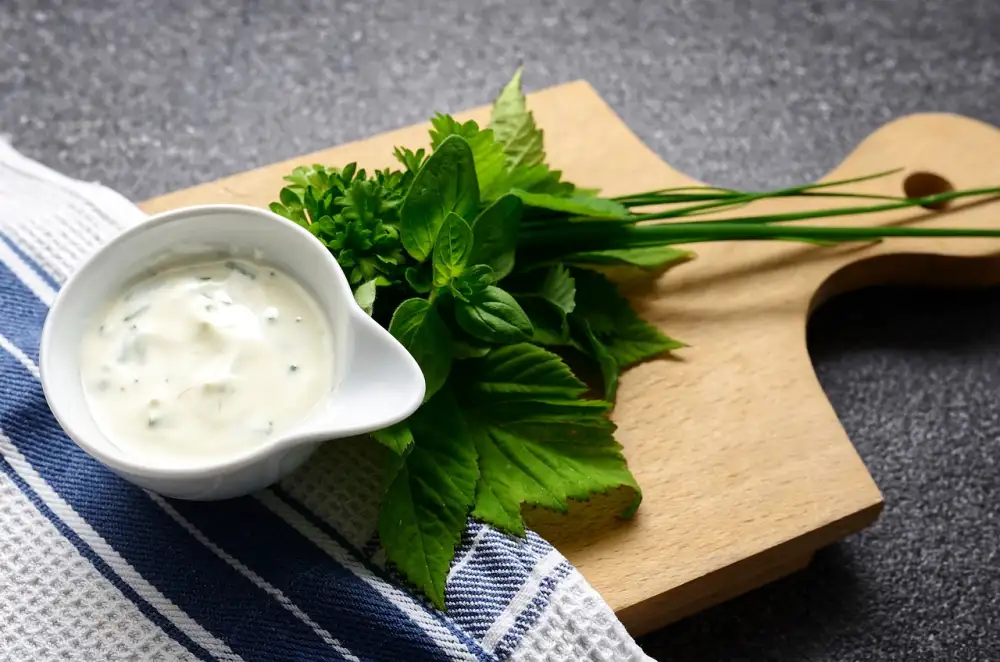Deliciously Savory: Unleash the Flavors of Chinese Cuisine with Oyster Sauce Recipes

Introduction to Oyster Sauce:
Oyster sauce is a rich and savory condiment that has been a staple in Chinese cuisine for centuries. It is a dark brown sauce made from oysters, soy sauce, sugar, and various seasonings. With its umami flavor and versatile nature, oyster sauce adds depth and complexity to a wide range of dishes.
This delectable sauce originated in China and has since gained popularity worldwide. It is commonly used in stir-fries, marinades, dressings, and as a dipping sauce. Oyster sauce brings out the natural flavors of ingredients while adding a unique taste that is both sweet and salty.
Whether you are an experienced chef or an amateur cook, oyster sauce can elevate your dishes to new heights. Its distinct flavor profile makes it a must-have ingredient in any kitchen. So let's dive into the fascinating world of oyster sauce and discover how it can transform your culinary creations!
History and origin of oyster sauce
Oyster sauce, a key ingredient in Chinese cuisine, has a rich history and fascinating origin. It is believed to have originated in the southern coastal regions of China, particularly in Guangdong province. The sauce was first created by Lee Kum Sheung, a chef from Nanshui town, during the late 19th century.
Legend has it that Lee Kum Sheung accidentally left a pot of oysters simmering for too long, resulting in a thick and flavorful sauce. Realizing its potential, he decided to bottle and sell it. This marked the birth of oyster sauce as we know it today.
Initially, oyster sauce was made using only oysters and salt. However, as its popularity grew, manufacturers started adding other ingredients to enhance its taste and texture. Today, most commercially produced oyster sauces include soy sauce, sugar, water, cornstarch or other thickeners, and sometimes additional flavorings like MSG or spices.
Oyster sauce gained popularity not only in China but also among Chinese immigrants who brought this culinary gem to various parts of the world. Its umami-rich flavor and versatility quickly made it a staple in many Asian kitchens.
As time passed, oyster sauce became an integral part of Cantonese cuisine and later spread to other regional cuisines within China. It eventually found its way into international dishes as well.
The history and origin of oyster sauce highlight its humble beginnings as an accidental creation that turned into an essential condiment beloved by many around the globe.
Ingredients used in making oyster sauce
Oyster sauce is a versatile and flavorful condiment that adds depth and richness to Chinese cuisine. It is made from a few simple ingredients, namely oysters, water, salt, sugar, and sometimes soy sauce or cornstarch for thickening. The key ingredient in oyster sauce is the oyster extract, which is obtained by simmering fresh oysters in water until they release their natural juices. This liquid is then reduced and concentrated to create the distinct umami flavor that characterizes oyster sauce. The addition of salt and sugar helps to balance the flavors and enhance the natural sweetness of the oysters. Some variations of oyster sauce may also include additional seasonings such as garlic or ginger for added complexity. It's important to note that while oyster sauce contains real oyster extract, it does not taste overwhelmingly fishy. Instead, it has a savory and slightly sweet flavor profile that pairs well with a wide range of dishes.
How oyster sauce is made
Oyster sauce is made by simmering oysters in water until they release their flavorful juices. The liquid is then strained and reduced to a thick, concentrated sauce. To enhance the taste, some recipes may add soy sauce, sugar, salt, and other seasonings. The resulting sauce has a rich umami flavor with a hint of sweetness. It is important to note that authentic oyster sauce does not contain any actual pieces of oyster meat but is instead made from the essence of oysters. This process ensures that the sauce has a smooth texture and can be easily incorporated into various dishes.
Culinary uses of oyster sauce
Oyster sauce is a versatile ingredient that adds a rich and savory flavor to various dishes. Its umami taste makes it a popular choice in Chinese cuisine, as well as in other Asian and Western dishes.
One of the most common uses of oyster sauce is as a stir-fry sauce. It enhances the flavors of vegetables, meats, and seafood, giving them a delicious depth. Simply add a few tablespoons of oyster sauce to your stir-fry towards the end of cooking for an extra burst of flavor.
Oyster sauce also works well as a marinade for meats and seafood. Its thick consistency helps to coat the ingredients, infusing them with its distinct taste. Marinating chicken or beef in oyster sauce before grilling or roasting can result in tender and flavorful dishes.
Another popular use is as a dipping sauce. Mixed with soy sauce, vinegar, and chili oil, oyster sauce creates a delectable condiment for dumplings, spring rolls, or even roasted meats.
Additionally, oyster sauce can be used as a base for soups and stews. Its concentrated flavor adds depth to broths and enriches the overall taste of the dish.
It's important to note that while oyster sauce is commonly used in vegetarian dishes, it does contain oysters. However, there are vegetarian versions available that use mushrooms or other plant-based ingredients instead.
Overall, the culinary uses of oyster sauce are vast and varied. Its unique flavor profile elevates dishes by adding complexity and richness that can't be replicated by other sauces. Experimenting with different recipes will allow you to fully explore the versatility of this delicious condiment.
Health benefits of oyster sauce
Oyster sauce not only adds a rich and savory flavor to dishes, but it also offers several health benefits. Firstly, oyster sauce is low in calories and fat, making it a great option for those watching their weight. Additionally, it contains essential nutrients such as iron, zinc, and vitamin B12, which are important for maintaining a healthy immune system and promoting red blood cell production. Oyster sauce also provides a good source of calcium, which is crucial for strong bones and teeth. Moreover, it contains antioxidants that help protect the body against free radicals and reduce the risk of chronic diseases. However, individuals with shellfish allergies should avoid consuming oyster sauce. As with any condiment or sauce, moderation is key to enjoying its health benefits while maintaining a balanced diet.
Tips for using oyster sauce in recipes
1. Use oyster sauce as a marinade: Oyster sauce adds depth and richness to meats, seafood, and vegetables when used as a marinade. Simply coat your ingredients with oyster sauce and let them marinate for at least 30 minutes before cooking.
2. Enhance stir-fries: Oyster sauce is a staple in Chinese stir-fry dishes. Add it towards the end of cooking to infuse your stir-fries with its savory flavor. Remember that a little goes a long way, so start with a small amount and adjust to taste.
3. Mix it into sauces and dressings: Oyster sauce can be used to elevate the flavor of sauces and dressings. Add a splash of oyster sauce to soy-based sauces or vinaigrettes for an umami boost.
4. Pair it with vegetables: Oyster sauce complements the natural sweetness of vegetables. Stir-fry or sauté your favorite veggies with oyster sauce for a quick and flavorful side dish.
5. Experiment with fusion cuisine: Don't limit yourself to traditional Chinese recipes! Oyster sauce can add depth to various cuisines, such as adding it to pasta dishes, glazing roasted meats, or even incorporating it into burgers.
6. Store properly: To maintain the quality of your oyster sauce, store it in the refrigerator after opening. Make sure to tightly seal the bottle or transfer it to an airtight container to prevent spoilage.
By following these tips, you can unlock the full potential of oyster sauce in your culinary creations and enjoy its unique savory flavors.
Popular recipes using oyster sauce
1. Stir-Fried Beef with Oyster Sauce: Tender strips of beef are marinated in a mixture of oyster sauce, soy sauce, and garlic, then quickly stir-fried with vegetables like bell peppers and onions. The result is a savory and satisfying dish that pairs perfectly with steamed rice.
2. Honey Garlic Shrimp: Succulent shrimp are coated in a sweet and tangy sauce made from oyster sauce, honey, garlic, and ginger. This quick and easy recipe is bursting with flavor and can be served as an appetizer or main course.
3. Vegetable Stir-Fry: A colorful medley of fresh vegetables such as broccoli, carrots, snow peas, and mushrooms are stir-fried in a combination of oyster sauce, soy sauce, and sesame oil. This versatile dish can be enjoyed on its own or paired with your choice of protein.
4. Oyster Sauce Chicken: Tender chicken pieces are marinated in a mixture of oyster sauce, soy sauce, and spices before being cooked to perfection. This simple yet delicious recipe is a staple in Chinese cuisine and can be served with steamed vegetables or noodles.
5. Garlic Fried Rice: Fragrant jasmine rice is stir-fried with garlic, eggs, and a drizzle of oyster sauce for added umami flavor. This flavorful side dish pairs well with any meat or vegetable entree.
These popular recipes showcase the versatility of oyster sauce in enhancing the flavors of various dishes. Whether you prefer seafood, meat, or vegetarian options, there's a recipe that will surely satisfy your taste buds. Experimenting with different ingredients and techniques will allow you to create your own unique dishes using this savory condiment.
In conclusion, oyster sauce is a versatile and flavorful condiment that adds depth and richness to Chinese cuisine. Its origins can be traced back to ancient China, where it was first created by simmering oysters in water and then reducing the liquid to a thick sauce. Today, oyster sauce is made by combining oyster extracts with soy sauce and other seasonings.
Not only does oyster sauce enhance the taste of dishes, but it also offers several health benefits. Oysters are a good source of essential nutrients like zinc, iron, and vitamin B12. Additionally, oyster sauce contains no fat or cholesterol and is low in calories.
When using oyster sauce in recipes, it's important to remember that a little goes a long way due to its intense flavor. Start with small amounts and adjust according to your taste preferences. It pairs well with various ingredients such as vegetables, meats, and seafood.
Some popular recipes that incorporate oyster sauce include stir-fries, noodles, and marinades for grilled or roasted meats. The umami-rich flavor of oyster sauce adds complexity to these dishes and elevates their overall taste.
In conclusion, oyster sauce is an essential ingredient in Chinese cooking that brings out the savory flavors of dishes. Its unique taste profile and health benefits make it a must-have condiment for any culinary enthusiast. So why not unleash the flavors of Chinese cuisine by incorporating oyster sauce into your next meal?
Published: 16. 02. 2024
Category: Food



